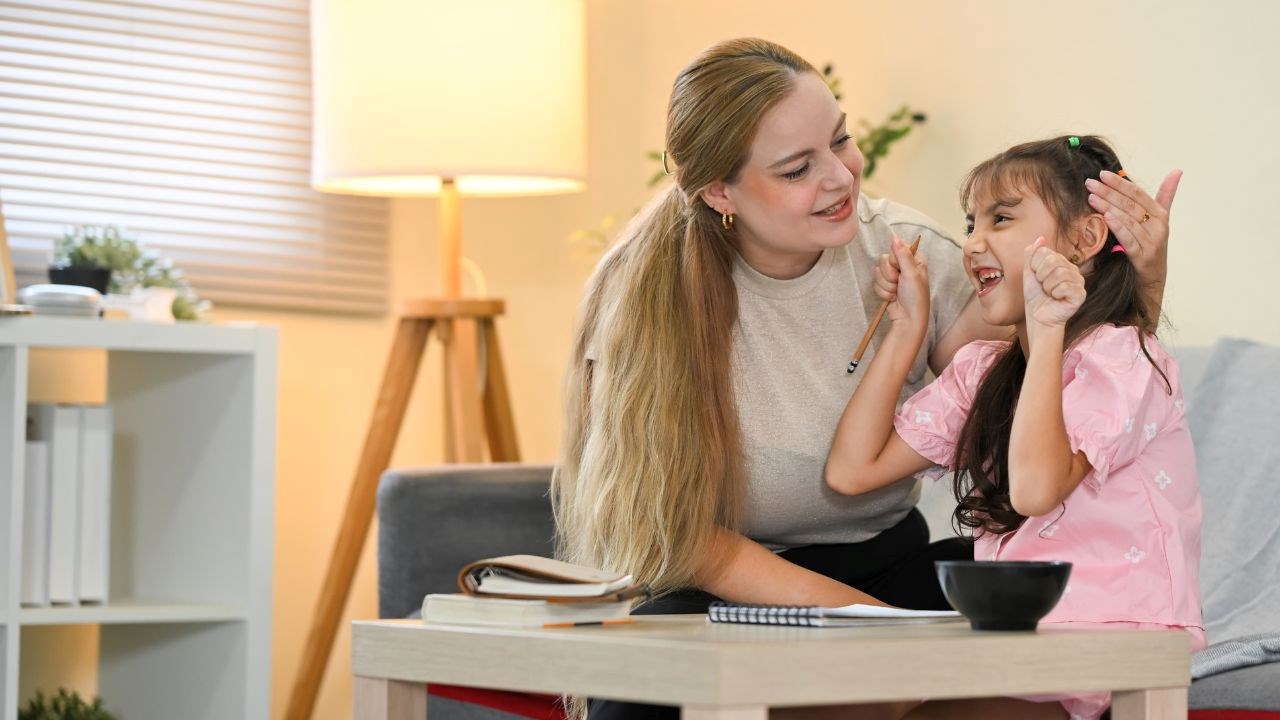How Conversations at Home Support Writing

Talking with your child is fun and it’s also a great way to help them grow as a thinker and future writer. At school, teachers use conversation to build confidence, spark ideas, and support writing. At home, you can help too just by chatting together in everyday moments.
This kind of talking helps build oral language, which is a key part of our district’s literacy framework. Strong speaking and listening skills support reading and writing, and they help students become better learners overall.
Here are a few easy ways to build oral language at home and support your child’s literacy:
Make Lists Together
Talk through lists together with your child. For example:
- What should we pack for a camping trip?
- What are your top five favourite snacks?
- What do we need for your birthday party?
This helps kids sort ideas, explain choices, and use clear words.
Use Imagination to Spark Ideas
Creative questions get kids thinking and talking. Try asking:
- What do you think Darth Vader does on his day off?
- If you could invent a holiday, what would it be?
- If animals had jobs, what would a giraffe be good at?
These playful chats help kids build stories in their minds, just like writers do.
Explore Memory, Facts, and Imagination
Good writing often comes from different kinds of thinking. You can explore this by asking:
- Memory: Tell me about the best day you ever had.
- Facts: What do you know about volcanoes?
- Imagination: If you could fly, where would you go?
This helps kids learn to describe, explain, and imagine – all important skills for writing.
Listen and Wonder Together
When your child shares something, ask gentle questions like:
- Why do you think that?
- What happened next?
- Can you tell me more?
This shows that their ideas matter and helps them learn to speak clearly and confidently.
Our district is working to improve literacy rates by focusing on the full picture – reading, writing, speaking, and listening. Every conversation at home helps build the skills your child needs to succeed in school and beyond. You don’t need to be a teacher. Just talk, wonder, and explore ideas together. It all counts.









